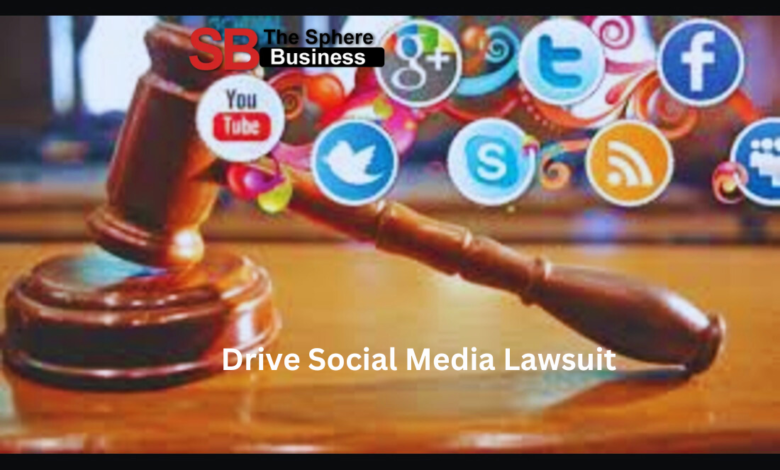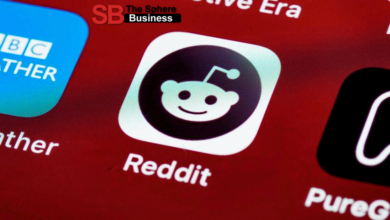Drive Social Media Lawsuit: Understanding the Legal Landscape in 2024

In recent years, social media platforms have become a central part of our daily lives. From Facebook to Twitter, Instagram to TikTok, billions of users worldwide engage with these platforms, sharing content, forming communities, and expressing their thoughts. However, this widespread use of social media has also raised significant legal questions and concerns. Among these, the term “drive social media lawsuit” has gained prominence as individuals, companies, and even governments seek to address the challenges posed by social media’s impact on society.
In this article, we will explore what a “drive social media lawsuit” entails, the key legal issues surrounding social media platforms, the role of users and content creators, and the evolving regulations. We will also provide examples and insights into how lawsuits in the realm of social media are shaping the future of digital platforms.
What is a Drive Social Media Lawsuit?
A “drive social media lawsuit” refers to a legal action that is either initiated due to or is heavily influenced by social media interactions. This could involve individuals, organizations, or even governments suing a social media platform or its users over issues such as defamation, privacy violations, intellectual property infringement, harassment, discrimination, or other forms of legal wrongdoing.
The term “drive” here implies that social media has become the driving force behind many legal disputes. Whether it’s content shared on a platform leading to reputational harm or the use of social media to orchestrate harmful actions, legal cases involving these platforms are on the rise. As social media continues to grow in influence, so too does the complexity of the legal issues it spawns.
Legal Issues Driving Social Media Lawsuits
Defamation and Libel on Social Media Platforms
One of the most common legal challenges faced by social media users and platforms is defamation. Defamation involves making false statements that harm an individual’s reputation. Libel refers specifically to written or published defamatory statements, making social media a prime battleground for libel suits. Given the vast reach and instant nature of social media, damaging content can spread rapidly, leading to significant reputational harm.
In a drive social media lawsuit involving defamation, plaintiffs often argue that a defamatory statement made by a social media user has caused harm to their personal or professional life. The legal question here typically revolves around whether the platform itself is liable for hosting the defamatory content or whether the responsibility falls solely on the individual who made the statement.
Privacy Violations and Data Breaches
Privacy concerns are another major issue driving lawsuits related to social media. Platforms often collect vast amounts of personal data, which may include user behavior, location, personal details, and even browsing history. If social media platforms fail to protect user data adequately or misuse it, they could face legal action.
One of the most high-profile cases in this category involved Facebook’s data-sharing practices. The Cambridge Analytica scandal, where user data was harvested without consent, led to significant legal and financial consequences for the company. In addition, many countries have introduced privacy regulations like the European Union’s General Data Protection Regulation (GDPR), which holds platforms accountable for the protection of user data.
Cyberbullying and Harassment
Another growing concern is online harassment, or cyberbullying, which is a significant driver of social media lawsuits. Victims of online harassment may sue the responsible individuals, or in some cases, the platform itself if it is believed that the platform failed to prevent the harassment or did not respond appropriately when notified.
Cyberbullying can take many forms, including threats, abusive messages, and the spreading of false rumors. Social media companies have come under increasing pressure to create safer online environments and develop effective measures to combat bullying. However, many platforms still face criticism for their handling of harassment cases, leading to lawsuits that question the platform’s responsibility to monitor and regulate user behavior.
Intellectual Property Infringement
Social media has also become a hub for intellectual property disputes, particularly in cases of copyright infringement. Many creators use social media to share content like videos, music, art, and memes. However, unauthorized use of copyrighted material is rampant on these platforms, and copyright holders may file lawsuits to protect their work.
Platforms like YouTube, Instagram, and TikTok have faced numerous lawsuits for hosting content that allegedly infringes on the intellectual property rights of others. Content creators, influencers, and even businesses who rely on social media for marketing and promotions are increasingly aware of the importance of protecting their intellectual property and ensuring that they do not infringe upon the rights of others.
The Role of Social Media Platforms in Lawsuits
Platform Liability: Safe Harbor and Content Moderation
One of the central legal debates surrounding social media lawsuits is whether platforms should be held liable for content posted by users. In the United States, Section 230 of the Communications Decency Act offers broad legal immunity to social media platforms, protecting them from liability for content posted by third parties. This law was intended to foster innovation by giving platforms the freedom to moderate content without fear of legal repercussions.
However, this “safe harbor” provision has become a point of contention. Critics argue that platforms should be held accountable for the harmful content they host, especially if they fail to moderate it effectively. In some cases, plaintiffs have attempted to sue social media companies directly, claiming they played a role in spreading harmful or defamatory content.
As calls for greater regulation grow, lawmakers are debating whether Section 230 needs reform to ensure platforms take more responsibility for the content on their sites. Some advocate for increased transparency and accountability, while others worry that stricter regulations could stifle free expression.
The Global Perspective: Different Countries, Different Laws
The legal landscape for social media lawsuits is not uniform across the globe. Different countries have different laws governing privacy, free speech, and platform liability. For instance, European countries tend to have stricter privacy laws, as evidenced by the GDPR, which imposes hefty fines for non-compliance. On the other hand, countries like the United States prioritize freedom of speech, which has led to more lenient regulations regarding content moderation and platform liability.
This difference in regulations means that social media platforms must navigate a complex web of legal requirements when operating in multiple countries. The drive for social media lawsuits is further complicated by these jurisdictional differences, as users may file suits under local laws while platforms attempt to enforce global policies.
Notable Examples of Drive Social Media Lawsuits
Several high-profile lawsuits in recent years highlight the evolving nature of legal disputes in the social media age.
The Lawsuit Against Twitter Over Harassment
In 2022, a prominent journalist filed a lawsuit against Twitter for failing to remove defamatory and harassing content. The journalist had been the target of a coordinated harassment campaign on the platform. Despite multiple reports, Twitter did not remove the harmful content, leading the plaintiff to take legal action. This case underscores the growing frustration with platforms’ handling of online harassment and their responsibility to protect users from harm.
The Facebook Data Privacy Scandal
The Cambridge Analytica scandal led to a wave of lawsuits against Facebook for breaching user privacy. Facebook was accused of allowing third-party organizations to harvest personal data without user consent. This scandal led to a massive public outcry and resulted in regulatory investigations in multiple countries, including a landmark $5 billion fine imposed by the U.S. Federal Trade Commission (FTC).

The YouTube Copyright Battle
Many YouTubers have filed lawsuits against the platform for issues related to copyright strikes, monetization, and content removal. One of the most significant cases involved a group of content creators who argued that YouTube’s automated copyright enforcement system unfairly flagged their videos. This case highlighted concerns over platform algorithms and the need for better transparency and fairness in content moderation practices.
The Future of Social Media Lawsuits
As the influence of social media continues to grow, the legal landscape will undoubtedly evolve. Governments worldwide are increasingly considering stricter regulations to address issues like online harassment, privacy breaches, and misinformation. In the United States, there have been discussions around revisiting Section 230 to ensure that platforms are held accountable for their role in spreading harmful content.
For users, businesses, and influencers, staying informed about their rights and responsibilities on social media will be more important than ever. Legal actions related to social media may not only impact the platforms themselves but also shape the way individuals interact online in the future.
Conclusion
The concept of “drive social media lawsuit” is a reflection of the increasing intersection between digital platforms and the legal system. As social media continues to shape public discourse, the legal challenges it presents will evolve as well. Whether it’s defamation, privacy concerns, harassment, or intellectual property, the rise of lawsuits linked to social media interactions highlights the need for clearer regulations, better platform accountability, and greater protection for users.
As we move into the future, both legal professionals and social media companies will need to navigate this complex and rapidly changing landscape. At the same time, users must be aware of their rights and responsibilities in the digital world, ensuring that their interactions on social media do not expose them to legal risks. Ultimately, the resolution of these issues will play a critical role in shaping the future of online spaces.





